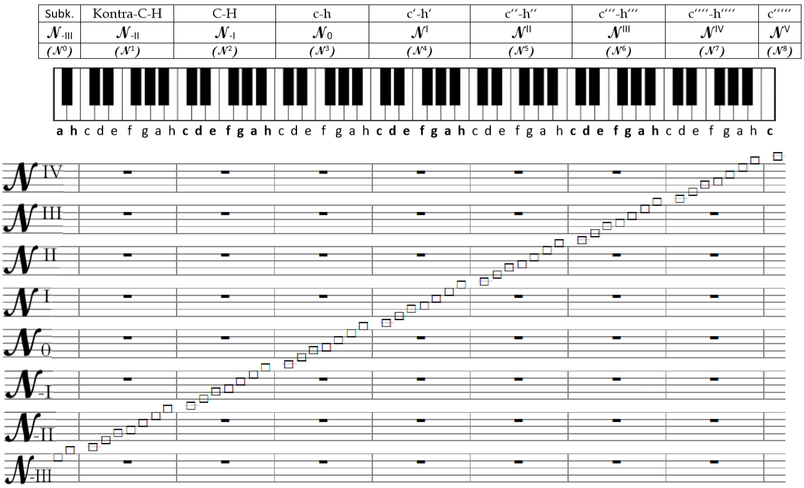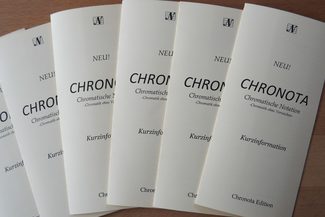Notation examples
Chromatic scale from c' to c''

Each chromatic note always retains the same position on the staff in every octave. A small numeral after the new Chronota clef "N" marks respective octave. As a result it is possible to avoid large numbers ov ledger lines.
Semitone and whole tone steps are recognizable in Chronota at first glance - a big advantage over traditional notation. The notes of scale look the same in every octave. Whether major, minor or whole tone scales: all tone steps are easily recognizable using Chronota.
The following example shows the pitch ranges using a piano keyboard:
- each octave has its own octave nme (small numerals)
- each note retains the same position in every octaves
C major scale in Chronota notation:

The familar look of the score stays the same, only the notes are assigned a new place on the stave. This facilitates the orientation, and it is relatively easy to get used so. Chronota is easy to read, write and play with a little practice.

Flyer copyright: www.chronota.de
The short pamphlet (see picture) provides information about Chronota. This pamphlet can be sent by post or is available via following link as a PDF file:
CHRONOTA_Flyer_EN_2018.05.17.pdf (545.04 KB)
A detailed explanation with many examples can be found in the booklet "Präsentation", available directly from Chronota Edition.
